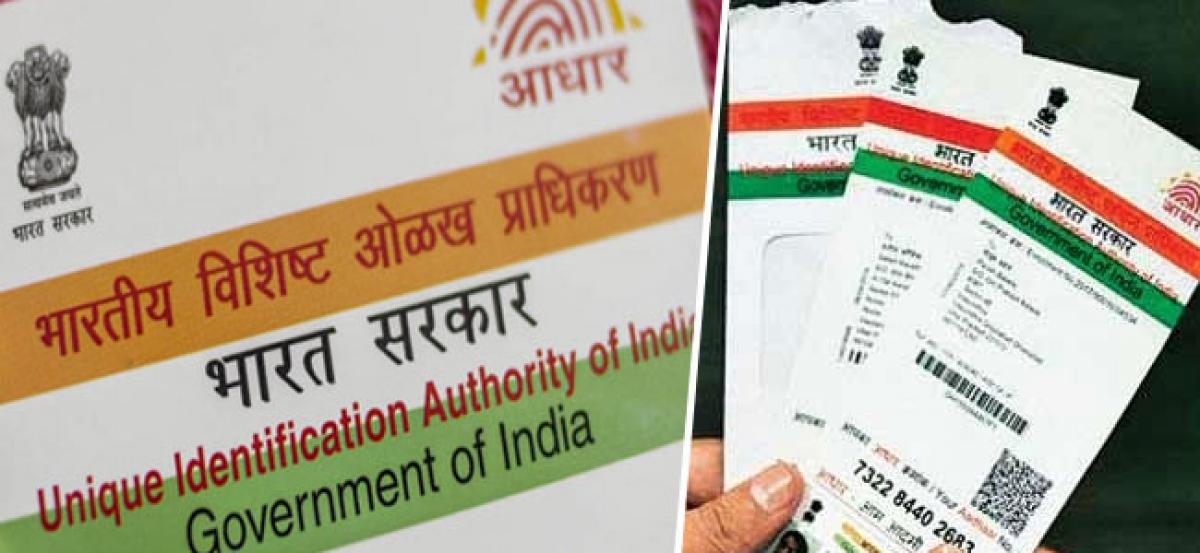Live
- More sports equipment promised at Central Park
- Mohan Babu’s attack on journalists inhumane act
- West Quay-6 of VPA to get revamped
- Rajaiah demands govt to introduce SC categorisation Bill in Assembly
- Make all arrangements for smooth conduct of Group-2 exams
- CP congratulates chess champs
- Stage set for children’s science exhibition
- ‘Generation Green’ initiative to drive e-waste awareness
- Mysore royal family to get Rs 3,000 crore compensation for Palace Grounds
- Suspend officers who caned Panchamasali protesters: Bommai
Just In

A new book on Aadhaar seeks to answer several questions associated with the 12-digit identification number and its impact on the citizen-state relationship.
A new book on Aadhaar seeks to answer several questions associated with the 12-digit identification number and its impact on the citizen-state relationship.
Authored by political-economy analyst Shankkar Aiyar, the book by Westland Publishing, offers a linear history on the "ups, downs and turnarounds of Aadhaar under two governments with diametrically differing ideologies".
Aadhaar was created on July 6, 2009, by the then Finance Minister Pranab Mukherjee, who, sharing his insights on Aadhaar in the book has said, "I was not satisfied with merely letting it happen. I was determined to make it happen." With anecdotes of power games and turf wars to shore up or undermine the project, Aiyar examines how the scope and application of Aadhaar has spread beyond what was originally envisaged.
"'In Aadhaar: A Biometric History', he provides solutions for embedded infirmities, including constructive dialogue around data protection and privacy laws," publishers said in a statement.
The book also features interviews of technocrats and political figures key to the project -- Nandan Nilekani, former Home Minister P Chidambaram, former Finance Minister Yashwant Sinha, Congress Vice President Rahul Gandhi, then Prime Minister Manmohan Singh and current Prime Minister Narendra Modi.
Modi, who in April 2014 had dismissed Aadhaar as a "political gimmick", has said in the book, "The problem was not with the idea of Aadhaar but with the inadequacies." "For them (UPA II), it was just another scheme. I had suggested many ideas but they simply didn't want to accept any suggestions from Narendra Modi," the Prime Minister adds.
Westland Publisher V K Karthika says, "There are so many questions we all have on the subject of Aadhaar and the changing relationship between the state and the citizen. This book seeks to answer them even as it lays out the terrain for future conflicts and possible resolutions."

© 2024 Hyderabad Media House Limited/The Hans India. All rights reserved. Powered by hocalwire.com







